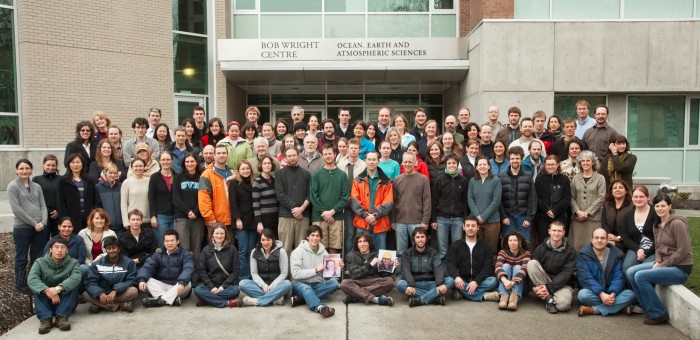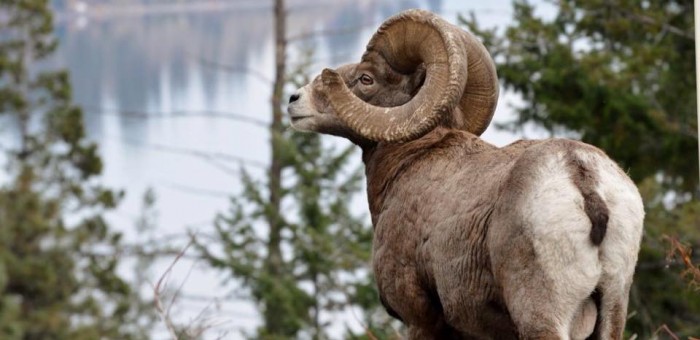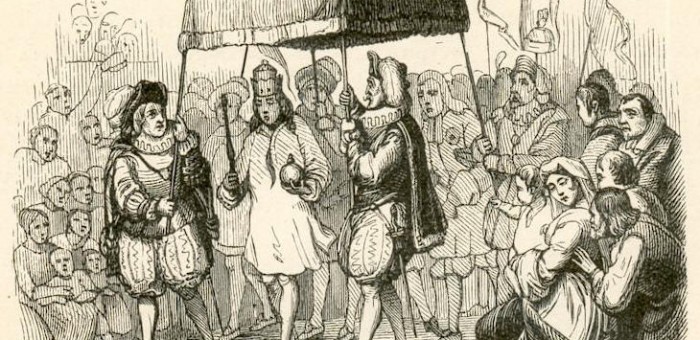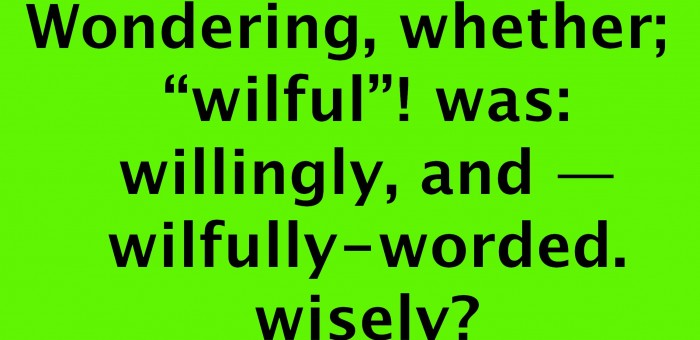Multiculturalism Grants Program
Community Organizations throughout British Columbia have until December 13th, 2015 to apply for the Provincial Government’s Multiculturalism Grants Program.
Offered by the Ministry of International Trade and Responsible for Asia Pacific Strategy and Multiculturalism and administered by the Gaming Policy and Enforcement Branch, Multiculturalism Grants support cultural expression and anti-racism programs and projects that raise awareness about or enhance B.C.’s multicultural identity.
Organizations can apply for a grant through two streams:
Stream A: Cultural Expression – Projects which raise awareness about B.C.’s rich multicultural identity through cultural events and/or resource tools. This could include festivals, community forums, cultural celebrations and materials that support positive expressions of culture and traditions in a community.
Stream B: Anti-racism – Projects that challenge racism and hate, especially those that utilize a collaborative and community approach. This could include community forums, public engagement sessions, interfaith dialogues, collaborative arts projects (dance, theatre, visual arts) and educational workshops that engage community members in addressing racism and hate.
For more information on the program and how to apply, please click here.
Bill 41 — Miscellaneous Statutes Amendment Act (No. 3), 2015
Today at Committee Stage I asked two questions seeking clarification from the Minister of Advanced Education as to the type of fees that are collected by Student Societies and whether or not these are what he had in mind with respect to the new legislation. More details are available in my second reading comments.
The Minister’s answer was quite clear that “From our perspective, what [student societies] do with the funds they collect under [the student society] fee heading is up to them. We have no intention of getting involved in what they do, particularly at the student society level.” This suggests that a way to get around some of the concerns still being raised would be to roll as much a possible into the student society fees.
Below is the exchange I had with the Minister.
Question 1
A. Weaver: I’m just trying to seek clarification from the minister specifically with respect to the University of Victoria and, presumably, other universities as to the type of fees that are collected and whether or not these are what he had in mind.
If you’re a student going to the University of Victoria, you’re required to pay student fees for the UVic Students Society, fees set through earlier referenda; the UVSS renovation fee, set through referendum for the renovations of the student buildings; a UVic athletics fee only for on-campus people, again set through referendum at a time back in history; a UVSS bus pass, also set through referendum; UVSS dental plan and UVSS extended health plan, both of which you are able to opt out — as, I believe, is the case for every university I’ve talked to — if you have other dental plans existing.
Now, what I’m asking here is if these are the type of fees, in light of the information I gave, that the minister believes would be required to be paid anyway by a student who withdrew from the university student society? And I have a small follow-up on one of these after that answer.
Answer
Hon. A. Wilkinson: The member lists a number of fees, and it’s a bit of a sample of the range of fees found at our 25 institutions, the Justice Institute being the one organization that does not have a student society and therefore has no appropriate fees in this category.
The opt-out arrangements for at least two of the fees indicate that of the somewhere between 100 and 200 different fees we are addressing here, that will require consultation with the student societies and the universities and colleges involved to ascertain which ones should be put into which category.
Question 2
A. Weaver: Just a quick follow-up here. The UVic Student Society fee is one that students are required to pay to keep the ongoing governance of the UVic Student Society.
That student society fee subset monies to organizations like the UVSS Food Bank and Free Store, the anti-violence project, the Society for Students with a Disability, the Native Students Union, UVSS Students of Colour Collective and the UVic Pride collective, amongst others.
My specific question here is: if the students are paying one fee, that is the UVic Students Society fee, and the students society makes decisions within that on how those funds are spent, is the minister talking about having them have each and every subset of their overall student fee being approved by the ministry? Or is it just the one fee?
One of the overarching concerns is that micromanagement, at the level of the government, will be to look at each and every decision being made by a student society in a student society fee. Could the minister please provide clarification on that?
Answer
Hon. A. Wilkinson: I hope that the remarks I’m about to make will be reassuring to the student societies and to the members opposite. The anticipation is that there’ll be no change in the structure, content, nature or collection of student society fees through this process. The student societies assess fees, which are widely variable around the province. From our perspective, what they do with the funds they collect under that fee heading is up to them. We have no intention of getting involved in what they do, particularly at the student society level.
I thought we had made this reasonably clear in the conference call on November 2, but if there is any remaining anxiety amongst the student societies and unions or amongst the members opposite, I hope this has succeeded in allaying those fears.
Video of the Exchange
A Bill to Reduce Preferential Treatment of Non-Resident Hunters
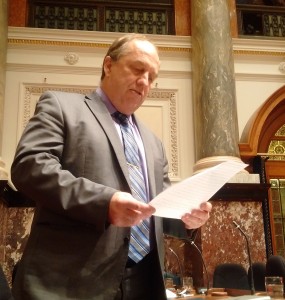 Today in the legislature I tabled a private members bill entitled: Wildlife Amendment Act (No. 2), 2015. The purpose of this Bill was to reduce the preferential treatment of non-resident hunters.
Today in the legislature I tabled a private members bill entitled: Wildlife Amendment Act (No. 2), 2015. The purpose of this Bill was to reduce the preferential treatment of non-resident hunters.
Limited entry hunting (LEH) is a lottery based management system used to organize the harvest of species in situations where there are too few animals and too many hunters. Currently the Wildlife Branch has different rules for resident and foreign hunters when it comes to obtaining LEH permits: Residents must enter a lottery draw, but foreigners (who are required to hire guide) can simply buy their way in. By eliminating the minister’s discretion to make separate rules for each group, this bill requires ALL hunters to enter a lottery for their LEH tags, as is done in other jurisdictions.
As it currently stands, residents may enter a lottery year after year and still not get drawn, while a non-resident can buy his or her way in every year if they want. This bill seeks to ensure certain groups do not have unfair access to LEH permits.
While people may wonder why we need a lottery system for non-residents when they are already restricted by the allocation split, it is worth noting that the split between permits allocated for resident and non-resident hunters is as high as 60% – 40% for some species. By comparison, Alberta sets non-resident allocations between 2-7 percent with a maximum of 10 percent and Washington State has limited non-resident wildlife allocations to approximately 5 percent. Non-resident hunters in B.C. are already getting a bigger share here than anywhere else in North America – and they are pay significantly less too. A non-resident hunter coming to B.C., for example, can buy a moose tag directly for $250.00 Canadian. In Washington State they would have to enter a draw and if their application got randomly selected they would have to pay $1,652.00 USD.
The price and availability of hunting permits is, of course, influenced by animal abundance and hunter demand. In B.C. compared to other jurisdictions in North America, however, they also seem to favour guide outfitters and their non-resident clientele over resident hunters. I tabled this bill today to reduce some of that unfair legislation.
Below I provide a video of my introduction along with its transcript. At the end i also include a copy of the proposed bill
Video of Bill Introduction
Text of Bill Introduction
A. Weaver: It’s my pleasure to introduce this bill — which, if enacted, would remove the minister’s ability to designate and exempt classes of applicants from having to enter lotteries or other methods of random selection when seeking limited-entry hunt permits. If enacted, these amendments would require all hunters to enter draws for their limited-entry hunt permits, regardless of resident, non-resident or non-resident alien designation, as is done in other jurisdictions.
As it currently stands, local hunters have to enter a lottery if they want to harvest an animal managed under the limited-entry hunt system, but out-of-province hunters can simply buy a permit for the same species and management unit area. Foreign hunters coming to B.C. already enjoy cheaper permits and greater allocation percentages than nearly every other jurisdiction in North America. It’s clearly unfair that they can buy their way into limited-entry hunts year after year, when British Columbians are left entering lotteries in the hopes of being granted the opportunity to harvest a public good in their home province.
The limited-entry hunt system is an important management and conservation tool. Its designation through the lottery system should be implemented across the board, mirroring other jurisdictions that require non-resident hunters to enter limited-entry hunt lotteries. Like every state in America, this legislation envisions a separate draw for local and out-of-province allocations.
I look forward to second reading of this bill. I move that this bill be placed on the orders of the day for second reading at the next sitting of the House.
Text of Bill M230
Wildlife Amendment Act (No. 2), 2015,
THE WILDLIFE ACT [RSBC 1996] Chapter 488. The Act is amended by:
Section 16 of the Act is amended by striking out sections 16 (1) (b.1) and 16 (3)
Limited entry hunting authorization
16 (1) The minister, by regulation, may
(a) limit hunting for a species of wildlife in an area of British Columbia,
(b) provide for limited entry hunting authorizations to be issued by means of a lottery or other method of random selection among applicants,
(b.1) provide for exceptions that the minister considers appropriate to the random selection among applicants in conducting a lottery or other method of random selection among applicants under paragraph (b), and
(c) do other things necessary for the purposes of this section.
(2) An application fee collected under a lottery or other method referred to in subsection (1) must be paid into the general fund of the consolidated revenue fund.
(3) In making regulations under subsection (1), the minister may define classes of applicants and make different regulations for different classes of applicants.
The Monumental Failure of BC Liberal’s LNG Hyperbole — What’s Plan B?
Today in the legislature during Question Period I rose to quiz the government on its irresponsible and misleading claims concerning our LNG potential. I’ve been pointing out the same thing for three years. An LNG industry in BC is not going to be an economic reality any time soon — the numbers just don’t add up. Yet during this time the BC Liberals have given us three years of hot air and broken promises. Franky, the LNG Emperor has no clothes and it’s time that British Columbians are told the truth.
As I pointed out two weeks ago, Goldman Sachs has forecast a 13 percent drop in LNG prices in 2017 and a further 23 percent drop by 2018. And the U.S. starts shipping LNG in January of 2016. The forecast spot price in Japan is $6.13 in 2016, compared to $7.49 now. Goldman Sachs has projected a $5.19 spot price for landed LNG in Japan in 2017 and a $4.75 spot price in Japan for 2018. It’s looking more and more like British Columbianas will have to literally pay people to take our gas.
During Question Period, I posed two questions to the Minister of Natural Gas Development. Frankly, in my view, his answers were shocking. But I will let you be the judge.
As a direct response to the absurd responses I received, immediately after question period I stood and moved that the house proceed to an emergency debate pursuant to Standing Order 35 on a plan for B.C.’s economy in light of the monumental failure of this government’s plan for LNG and the urgent need to transition to a low-carbon economy. I am grateful for the support of the BC NDP in my attempt to stimulate such a debate. The government argued such a debate was not needed and in the end, the speaker ruled on the side of the government.
Below I reproduce the Question Period exchange. I also provide the video and text of the discussions as to whether or not we should have the emergency debate.
Video of Question Period Exchange
Question
A. Weaver: In the lead-up to the last election, British Columbians were sold a bill of goods by this government. The promise of 100,000 jobs, a $100 billion prosperity fund, a $1 trillion hit to GDP, a debt-free B.C. and on and on.
This government has spent the last three years touting B.C.’s imminent LNG industrial boom. They sent a signal to the market that if industry wanted to do business in B.C., it had better have something to do with LNG.
We were summoned for an urgent summer session of the Legislature to debate the project development agreement for Petronas’ LNG proposal, yet the months continue to pass. The global market supply of gas gets bigger and bigger. Company after company move on to other jurisdictions, and this government remains silent about a plan B.
My question to the minister is this: given the monumental failure of this government’s plans for LNG, what is plan B for the B.C. economy?
Answer
Hon. R. Coleman: I’ve only got two minutes?
Madame Speaker: Please proceed.
Hon. R. Coleman: The only monumental failure in this House is that member’s inability to understand how important natural gas could be to the GHGs in the world sent from British Columbia.
Let’s give the member a little recap. We have a conditional FID. We have a project development agreement and one major project in Prince Rupert. We have environmental assessment certificates on three or four additional projects. We have 20 proposals in British Columbia for LNG, opportunities in B.C. Just yesterday, hon. Member, I was at Tilbury where they’re actually building a tank and expanding the Tilbury operation for Fortis for LNG to go into places like Hawaii. At the same time….
I know the member has an issue with First Nations having opportunities and changing their lives and the opportunity of a generation about LNG. But just yesterday the Tsawwassen First Nation announced that they’re going to do a referendum on accepting a proposal from a company, Mitsui, to put an LNG plant on their property in Tsawwassen for the future of their community.
We have 28 pipeline benefit agreements across the north for communities of First Nations, who will see an opportunity for trades, opportunities and a change in the lives of their young people, an opportunity for jobs.
We are moving forward with LNG. I know it drives the member crazy but that’s the way it is, hon. Member.
Supplementary Question
A. Weaver: Well, I think we should change the name of the ministry to the ministry of gas and hot air, based on that speech.
In just two short weeks, leaders from around the world will descend on Paris to attend the 21st Conference of the Parties to the United Nations framework convention on climate change. Next week the Premier will attend a first ministers meeting in Ottawa to come up with a national strategy prior to Paris.
Yet our government’s promise of wealth and prosperity from a hypothetical LNG industry is entirely inconsistent with a B.C. — let alone a national — strategy to reduce green house gas emissions. What will the government do today to invest in B.C.’s economy in light of the monumental failure of its LNG plans and the urgent need to transform to a low-carbon economy consistent with international efforts?
Answer
Hon. R. Coleman: Maybe the member ought to do a little bit of research. I know he thinks he’s an expert on this, but maybe he should go to China and see just how bad the air is and know that the cleanest-burning fossil fuel in the world can actually change the lives and health outcomes for hundreds of millions of people.
If he did, he would recognize that the world needs a transition fuel to reduce pollution, reduce GHGs in the atmosphere, take the particulates out of the air, give people better health outcomes. At the same time, while doing that, help the economy in British Columbia to improve the lives Asia, by bringing LNG from British Columbia to Asia to help them deal with a significant problem — at the same time, getting the maximum benefit from a resource that British Columbians have every right to get the benefit from.
Text of Request for Emergency Debate
A. Weaver: Again, I rise pursuant to Standing Order 35. As advised in Standing Order 35, I gave the Chair advance notice, and I’ve provided a written statement of the matter proposed to the Clerk.
By leave, I move that the House do now adjourn to discuss a matter of urgent public importance — namely, a debate concerning an economic backup plan for British Columbia given the complete collapse of this government’s all-in strategy on LNG and the urgent need to transition to a low-carbon economy.
This government spent the last three years touting B.C.’s imminent LNG industrial boom. They sent a signal to the market that if you wanted to do business here in B.C., it had to be something to do with LNG. Clearly, not the signal that many sectors wanted to hear.
From the answers in question period, it’s clear that government has no plan B. It’s clear that they have no climate strategy. Frankly, it’s clear that they’re rudderless.
As legislators, we have a duty to the people of British Columbia to urgently turn our attention towards a debate for plan B for B.C.’s economy prior to next week’s first ministers’ meeting in Ottawa and the upcoming UNFCCC meeting in Paris.
As section 35 demands, there is no other time in this session to debate such a plan for B.C.’s economy in light of the monumental failure of this government’s plan for LNG and the urgent need to transition to a low-carbon economy.
Hon. M. de Jong: I’m also obliged to the member for having not only provided the Chair but having provided me with advanced copy of his comments, which I should say bear a striking similarity to his comments in question period. That is not altogether insignificant, because one of the issues….
I must say that I am sorely tempted, given the nature of the subject advanced, to suggest that the House accommodate the member. But I am obliged to point out that the rules governing the application of Standing Order 35 are very strict and very specific, and that is for good reason.
The urgency of debate and the opportunity for debate. The member has just indirectly alluded, on this particular issue, to the opportunity that has existed in this chamber to make submissions on this very point. He did so mere moments ago in his participation in question period.
His remarks provided me with the opportunity to go back and review what he had to say earlier in this chamber, in September, in a debate that took place around energy matters, and again, I applaud him for his consistency, and I point out that I remain unconvinced about his approach and his arguments.
Nonetheless, the more important feature is that there has been ample opportunity. It is the urgency of debate, not the urgency of the matter itself. For that reason alone, I would suggest that the member in his submission to the Chair has failed to make the case for invoking section 35.
M. Farnworth: Just following on the Government House Leader’s comments, I know when this issue was raised back earlier in the summer session, the official opposition indicated that it would be supportive of a debate around the climate change and the conference in Paris.
That still remains our position. So if it was the Speaker’s view that, in fact, the motion moved by the member from Oak Bay, we would be supportive of the ability to have that debate.
Video of Request for Emergency Debate
We wonder whether “wilful” was willingly and wilfully worded wisely
Today we very quickly moved through committee stage of Bill 37, the Miscellaneous Statutes Amendment Act, (No. 2), 2015 (what I’ve called the Comma and Spellchecker Act). This bill simply corrected a few commas, a bracket that shouldn’t have been italicized, and a couple of spelling mistakes. I spoke to this bill earlier at second reading, Today, during committee stage I had but one question. Why are we only checking the spelling of willful in a couple of bills and not all of them?
Below are the text and video of the question together with the Minister’s response.
Video of Exchange
Text of Exchange
A. Weaver: I’ve got one question, and the question is with respect to: why these changes? Why I say that is I recognize the importance of changing the spelling of “willful” and doing it through legislation, as we are here.
But as I outlined in second reading, the Community Charter, Insurance Premium Tax Act, the Local Government Act, the Logging Tax Act, the Maa-nulth First Nations Final Agreement Act, the Mineral Tax Act, the Motor Fuel Tax Act, the Perpetuity Act — I don’t even know what some of these are — the Personal Property Security Act, the Property Transfer Tax Act, Railway Act, Tobacco Tax Act and on and on also have “wilful” spelt differently.
My question to the minister is this: Why do we selectively correct the spelling of “wilful” in some — the School Act, I reckon, is important — and not in other acts. Surely, in doing this, we would do a global search of how wilful is spelt and change all occurrences of wilful to be consistent across acts so that we’re not introducing more of these spell-checker acts wilfully.
Hon. S. Anton: The spelling of the word wilfully does occur in different acts and it’s spelled differently, as the member has pointed out. I’m glad that he has time to look up these things.
The issue in the Tobacco Tax Act is that it was spelled differently in the same act. The act was under consideration for other reasons, so it was thought an opportune time to correct it so at least the act itself was internally consistent.
Every time there’s a correction, it does require consultation. These mistakes are found, but you still have to go out to the ministry and make sure that they’re good with it and do all the proper dotting of the i’s and crossing of the t’s, so to speak, typographically. This was an opportune one to do right now. There may be others brought forward in the future, and that will be a matter of discretion as we move forward.


